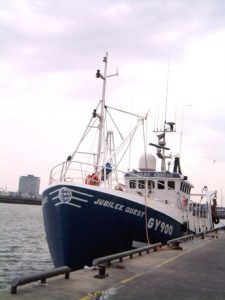In Massachusetts, the workers’ compensation system is codified in a section of the Massachusetts General Laws known as the Workers’ Compensation Act (WCA). The WCA provides that whenever an employee is injured on the job, that injured employee shall be entitled to workers’ compensation benefits, and the worker shall not be required to prove the employer was negligent in connection with the workplace injury.
 This is beneficial to the employee, because it will often take much less time to get approved for a workers’ compensation claim than it would take to settle a civil personal injury or to take the case to trial, should a fair and appropriate settlement not be reached. However, as an advantage to the employer, the employee is not able to file a civil personal injury lawsuit after an on-the-job injury in the vast majority of cases. This limits their exposure, as there are no damages for pain and suffering or punitive damages.
This is beneficial to the employee, because it will often take much less time to get approved for a workers’ compensation claim than it would take to settle a civil personal injury or to take the case to trial, should a fair and appropriate settlement not be reached. However, as an advantage to the employer, the employee is not able to file a civil personal injury lawsuit after an on-the-job injury in the vast majority of cases. This limits their exposure, as there are no damages for pain and suffering or punitive damages.
As our Boston workers’ compensation attorneys can explain, the test is whether or not the injured employee was eligible to apply for workers’ compensation and not whether or not she or she actually does. This means that an employee cannot forego filing for workers’ compensation benefits and then file a civil law case. However, there are a few exceptions to this rule. The main exception deals with a workplace injury caused by a negligent third party driver, and the other, much rarer, exception deals with an employer who acts with an extreme disregard for the health and safety of his or her employees, and that conduct results in an injury.
Finally, there are some cases where federal statute supersedes the state workers’ compensation law. This could be when an employee was injured on a railroad operation, is a police officer, or works in some other industry regulated by the federal government.
In a recent case from the Washington State Supreme Court, an employee was injured while at sea on a fishing trawler operated by his employer. In his complaint, claimant alleged that he was working a hatch on the fishing boat when the heavy hatch slammed shut on his hands. This resulted in the amputation of two of his fingers. It should be noted that in the Commonwealth, if a person suffers an amputation while on the job, he or she may be entitled to special compensation in addition to standard workers’ compensation benefits.
In this case, following the accident, claimant filed a civil lawsuit against his employer for having an allegedly unseaworthy vessel. While one would typically file a workers’ compensation claim with his or her employer following an accident such as this, the plaintiff relied on a maritime statute to file the case in a civil court.
Under our legal system, U.S. Congress has the authority to handle matters that arise on a navigable waterway. The ocean is considered a navigable waterway. Congress has used this power derived from the active commerce clause in the Constitution to create admiralty courts to handle cases and controversies that arise on navigable waters.
In this case, the employer appealed the award of punitive damages, but, on appeal, the court found that these damages were available and reversed and remanded the case for further damages consistent with its opinion.
If you or a loved one is seeking Social Security Disability Insurance in Boston, call for a free and confidential appointment at (617) 777-7777.
Additional Resources:
Spivey v. City of Bellevue, Feb. 9, 2017, Washington State Supreme Court
More Blog Entries:
Co-Worker Liability for On-the-Job Injury, Feb. 9, 2017, Boston Workers’ Compensation Lawyer Blog
 Massachusetts Workers Compensation Lawyers Blog
Massachusetts Workers Compensation Lawyers Blog

